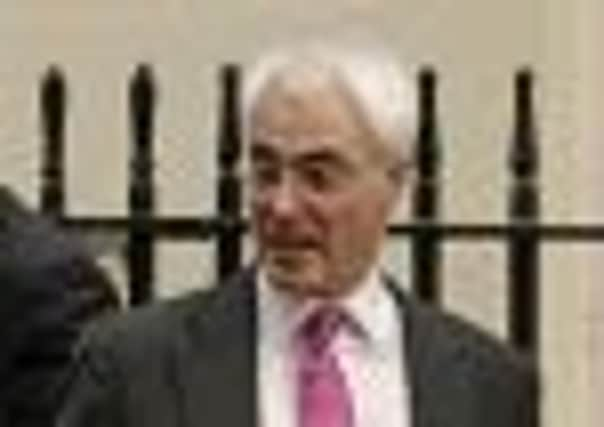Alistair Darling’s friends play down speculation he is to quit


The Edinburgh South West MP is currently leading the anti-independence Better Together campaign for a No vote in the 2014 referendum.
And there is speculation that Labour leader Ed Miliband wants to bring him back to frontbench politics and could appoint him as Chancellor again if the party wins the next general election in 2015.
Advertisement
Hide AdAdvertisement
Hide AdMr Darling, 59, was Chancellor under Gordon Brown at the height of the global banking crisis in 2008 and has been widely praised for the way he handled the tumultuous events.
But reports today claimed he was ready to quit Westminster. One senior Labour source was quoted saying: “Everyone expected Alistair to become Chancellor again if we win the next election. But he’s let it be known that he isn’t planning on standing at the next election. It’s a surprise, but it looks like he may already have made his mind up.”
However, friends of Mr Darling insisted he had not yet decided on his future plans.
One said: “At some point in the next few months, all MPs will be asked by the party if they want to stand again. Alistair has not made any decision at the moment. This sounds like a Christmas party story.”
Mr Darling, a former Lothian Region councillor, was elected as MP for Edinburgh Central in 1987.
And after Labour came to power under Tony Blair in 1997, he held a succession of key posts including Chief Secretary to the Treasury, Work and Pensions Secretary and Transport Secretary, winning a reputation for successfully taking troubled departments out of the headlines.
There has recently been speculation that Mr Miliband could bring him in to replace Shadow Chancellor Ed Balls before the 2015 election because he is seen as more appealing to voters.
Mr Darling emerged from the banking crisis with his reputation intact after overseeing the nationalisation of Northern Rock, as well as the bailing out of banking giants RBS and Lloyds — moves credited with preventing a full-scale economic depression.
Advertisement
Hide AdAdvertisement
Hide AdAfter Labour’s general election defeat in 2010 and Gordon Brown’s resignation, he resisted calls from some quarters for him to stand for the leadership and returned to the backbenches.
But he later agreed to front the campaign to stop the SNP winning the independence referendum.